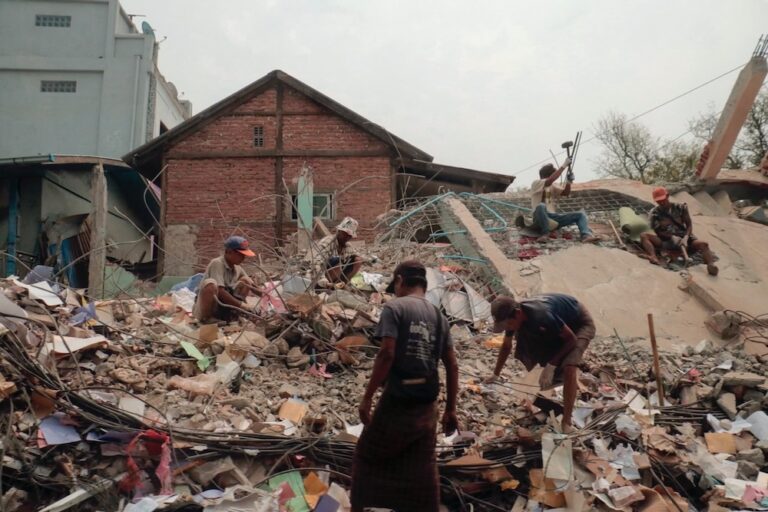Thein Sein promised to "respect the role of the media" but heavy jail sentences for journalists, the suspension of newspapers and police raids on Internet cafés show that there has been no let-up in controls and intimidation.
(RSF/IFEX) – 17 May 2011 – Press freedom and online freedom of information are still being flouted in Burma, three months after Thein Sein’s election as a civilian president. He promised to “respect the role of the media” but heavy jail sentences for journalists, suspension of newspapers and police raids on Internet cafés show that there has been no let-up in controls and intimidation. And now a string of new measures have just tightened control over Internet use.
“Thein Sein announced a general amnesty on 16 April for prisoners sentenced to death but there has been no pardon for Burma’s 2,000 political prisoners,” Reporters Without Borders said. “The regime’s professions of good intentions aim to deflect attention from recent measures designed to reinforce restrictions on news and information.
“The authorities clearly fear that the Arab Spring could spread. The new regulations are intended to intimidate Burmese Internet users and cut them off from the outside world. It is unacceptable that Burma is reacting in this way while chairing ASEAN, whose charter mentions respect for fundamental freedoms, the promotion and protection of human rights and the promotion of social justice.”
The press freedom organization added: “We urge ASEAN’s members including Indonesia, which takes over its presidency this year, to put pressure on Burma to adhere to this regional organization’s principles.”
Reporters Without Borders learned last week that the Burmese government’s censorship bureau, called the Press Scrutiny and Registration Division (PSRD), has suspended the Rangoon-based weekly True News for two weeks – supposedly for misreporting a mobile phone offer by the Ministry of Communications, Posts and Telegraphs (MCPT).
According to the exile news outlet Irrawaddy, the MCPT objected to a report quoting its chief telecommunications engineer, Zaw Min Oo, as saying anyone who owned a GSM mobile phone, which retail for 1.5 million kyat (US $1,830), would be able to get a second one for just 50,000 kyat ($60). But a True News reporter who requested anonymity said other articles published by the weekly were the real reason for the suspension.
At the same time, the MCPT has just sent a new set of rules to Internet cafés, which were already subject to draconian regulations imposed by the ministry, including a requirement to keep the personal data of all their clients along with a record of all the websites they visit, and make it available to the authorities.
The new set of directives includes a ban on the use of portable hard disks, USB flash drives and CDs in Internet cafés, and a ban on the use of Internet telephony (VoIP) services to call abroad. The grounds given by the ministry are the need to protect the state’s income from international phone calls but the move will isolate dissidents more and discourage Internet users from expressing themselves freely. Above all, it will affect users of services such as Skype, Gtalk, Pfingo and VZO, which are hard to monitor for the authorities.
( . . . )


